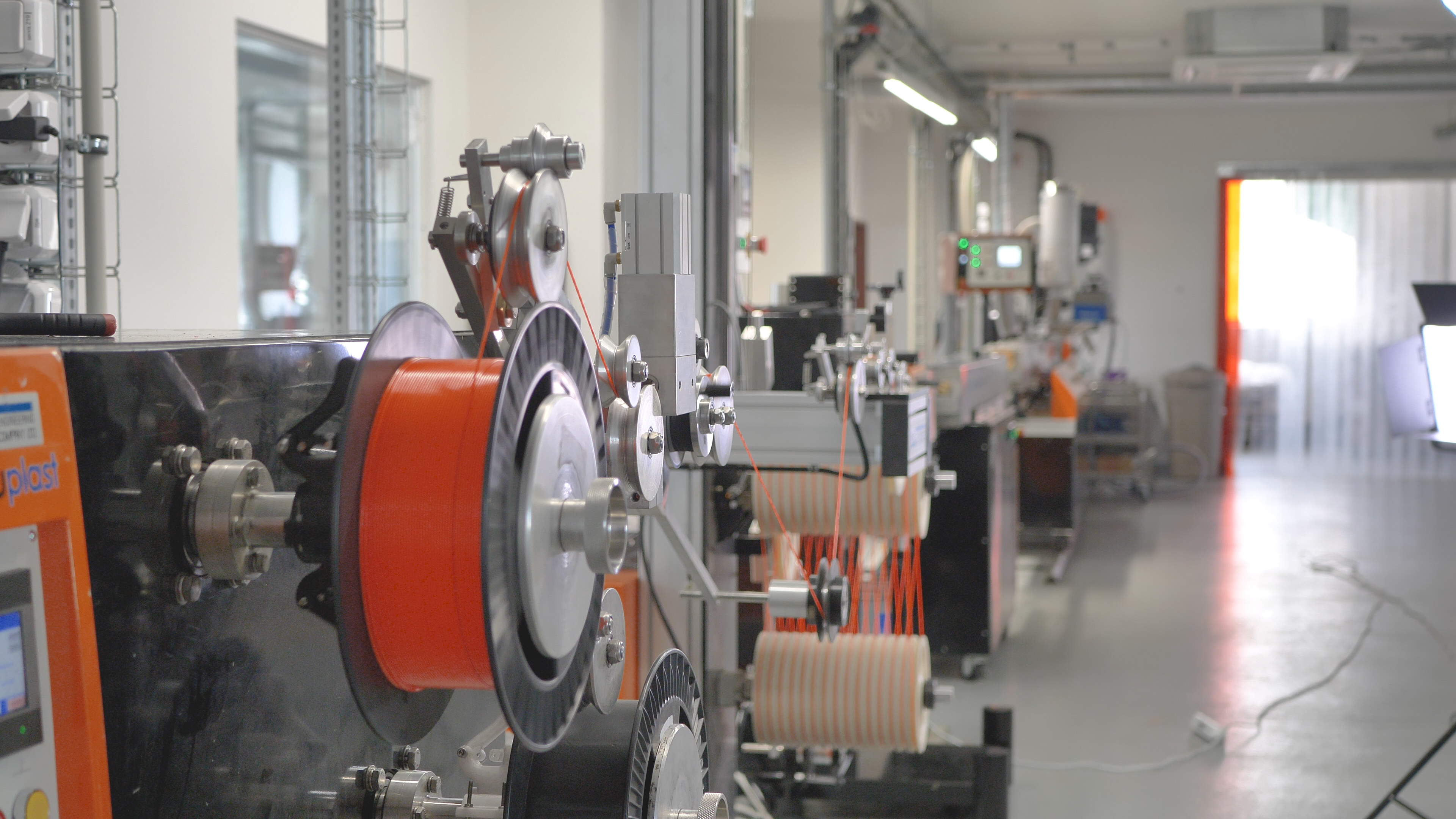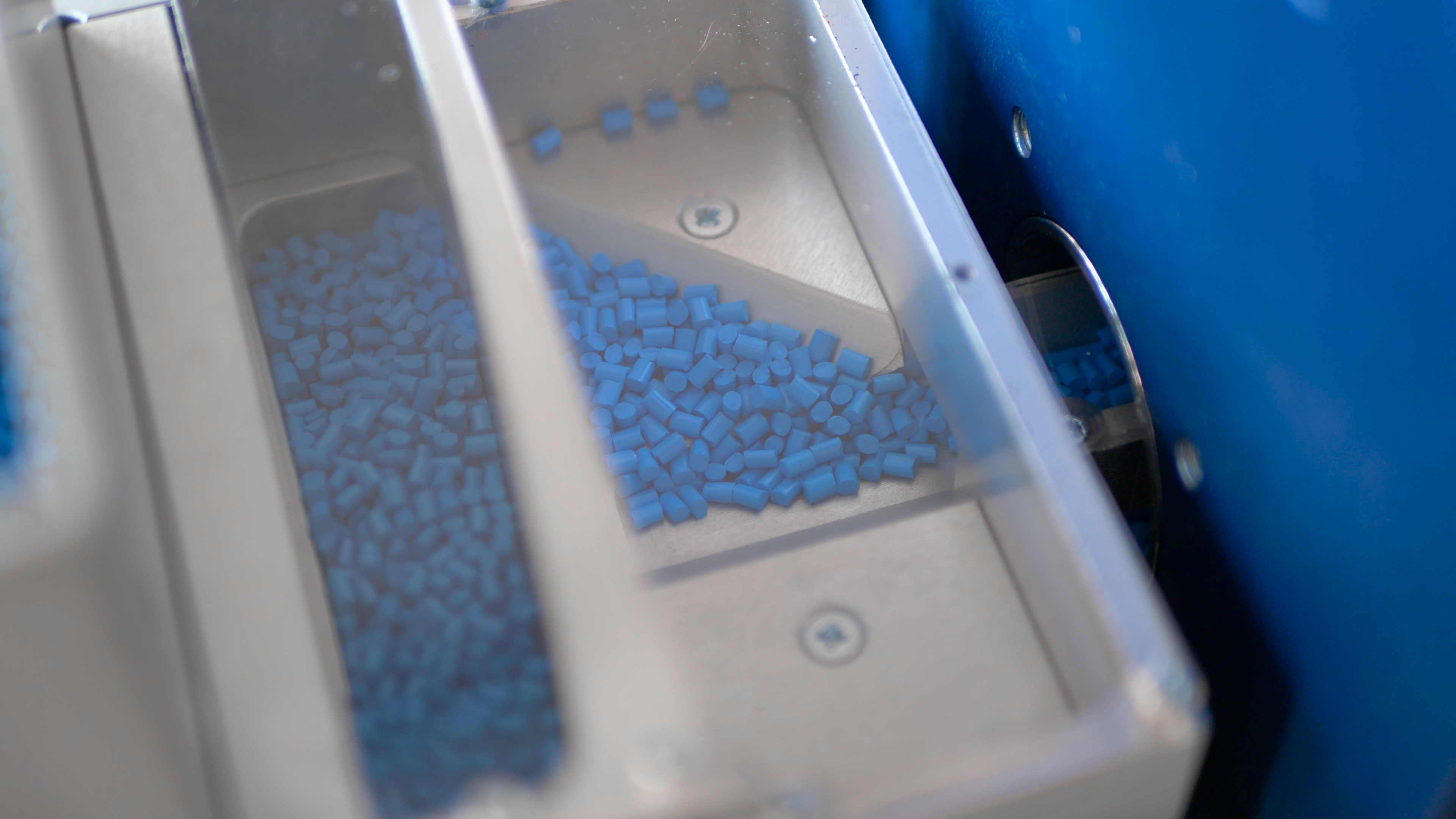Prusament ASA is Prusa Research's in-house made filament. The whole manufacturing process is closely monitored and tested - they guarantee ±0.03mm precision and highly-consistent colors. You can inspect the parameters of every spool we made at prusament.com. Check the sample spool!
 |
Manufactured In-House By Josef PrusaPrusa Research was not satisfied with the quality of filaments on the market. So they decided to make their own! Prusa Research is the only 3D printer manufacturer with its own filament production. |
Premium-Grade Materials And Thorough TestingThe whole manufacturing process is closely monitored and tested – string diameter, color consistency, and mechanical properties – to make sure that every spool is perfect. |
 |
 |
± 0.02 mm Manufacturing Guaranteed PrecisionPrusa Research believes the industry standard of 0.05 mm isn’t sufficient for perfect 3D printing. Instead, they guarantee ±0.02mm precision and highly-consistent colors in their filaments. |
High Quality You Can Check YourselfPrusa Research is the only manufacturer that gives the option to inspect parameters of every filament spool. Scan a QR code on the spool to see all details online (check the sample spool). |
 |
About ASA
ASA can be considered a true successor to ABS. Compared to ABS, it’s UV stable, it doesn’t suffer from shrinking so badly and the fumes produced are much less noticeable. ASA 3D prints are durable, tough and suitable for a wide range of applications. The solidification temperature is also higher compared to PLA and PETG, which gives objects printed from ASA an excellent temperature resistance – there are no signs of deformation up to temperatures near 93 °C. Thanks to all these properties, ASA is especially suitable to print objects meant for long-time outside use.
However, you can still encounter some issues related to shrinking (warping) of the material – especially when printing larger models. Even with the heatbed set to 110°C, the prints can shrink and warp, causing them to detach from the print bed. However, the effects are much less severe compared to ABS. This issue can be eliminated by printing inside an enclosure or by adding a tall skirt around the object.
ASA printing requires specific conditions for successful results. It’s important to run the prints in a well-ventilated room, because the material releases fumes and substances that could pose a potential health risk. However, when ventilating the room, do not create a draft around the print – this will negatively impact the result.
Print sheet preparation
For ASA printing, we recommend using the smooth PEI spring steel sheet. With the powder-coated sheet, the adhesion of the material can be too strong, which could potentially result in damage to the surface of the sheet. The smooth sheet preparation is easy: simply clean the surface with isopropyl alcohol. To remove the print, wait until it cools down – it will then pop off easily.
| Nozzle | 260±10 °C |
| Heatbed | 110±5 °C |
| Positive Values | Negative Values |
| + Great for outside use – UV stable + High temperature resistance + Detailed prints without a stringing effect + Can be smoothed with acetone vapors + Can be easily sanded / post-processed + High impact and wear resistance + Recyclable |
- Large models have a tendency to warp - Produces odors during printing (less than ABS) - Contains styrene - Hygroscopic - Not recommended to print on the Textured powder-coated steel sheet - very strong adhesion may cause damage to the steel sheet surface |
Notes
This ASA is made in-house by Prusa Research.
1.75 mm filament is manufactured with a precision of +- 0.03 mm

